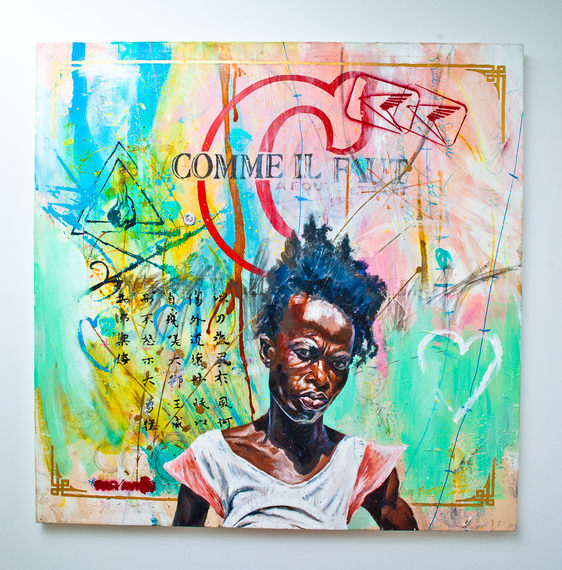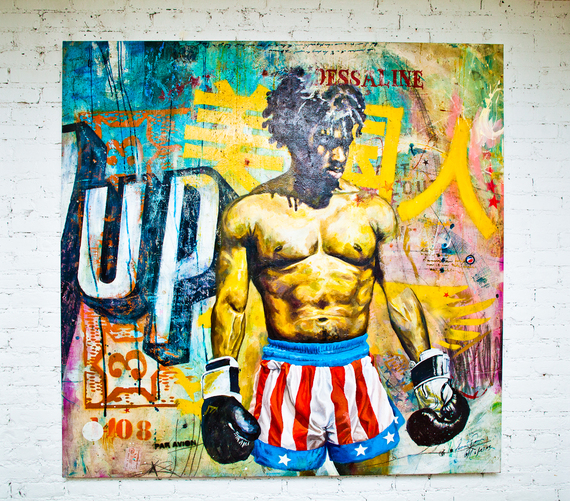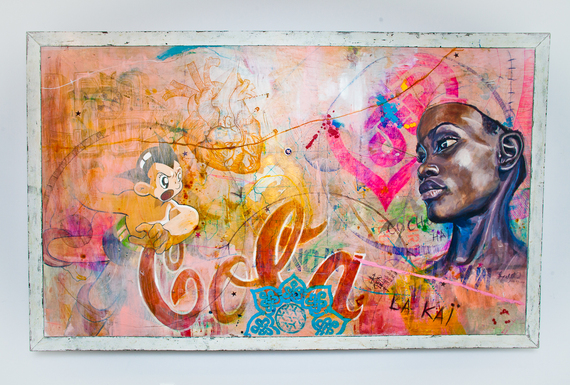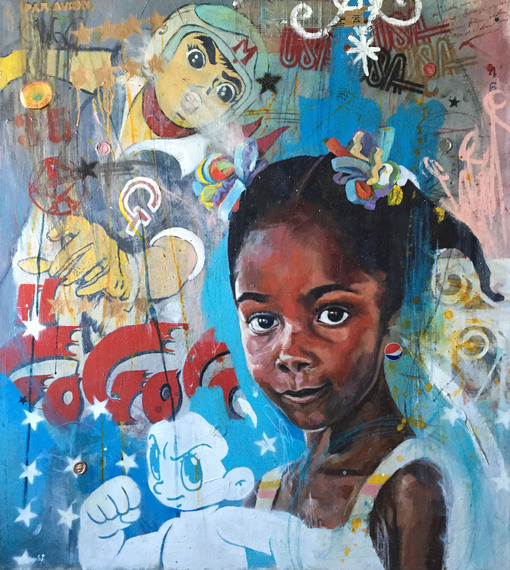We see them everywhere -- in commercials, on billboards and the clothes we wear. In a media saturated world logos and icons have penetrated every facet of our subconscious. Visual artist Gregory Saint Amand (GOGO) investigates this exchange between brands, icons and the human psyche. Predominantly taking on the form of portraits, Amand's paintings (on canvas, wood and cardboard) often feature subjects in repose surrounded by an explosion of striking patterns, vibrant color and pop culture references from Coco-Cola to Sonic the Hedgehog. In his current solo show "Production of the Monarchy" at Harlem's La Maison d'Art he analyzes how the images of brands and icons exert influence over our everyday lives.

Credit: Will Vaultz
Amand spoke with us about how his background living in Haiti and New York influences his work, the effects of cultural assimilation and the responsibility of corporations to serve humanity.

Credit: Will Vaultz
On how the cultural power of brands and icons in Haiti and America inspire his work:
"I started observing logos and brands way before I knew that they were agents of capitalism.
However once I began to understand that the products I was consuming -- in one form or another -- were from another place I started realizing how embedded in them was the American culture. I was exposed to those brands before I realized that I also was an American. Being raised in Haiti, there was this sense that American brands were better than the brands made in Haiti or of any other brands made in second and third world nations. By the simple act of drinking Coca-Cola we all felt that we were drinking the best. In my paintings I express and discover my awareness that I too lack immunity against the influences of iconic branding and capitalism."
On the impact of the global visual language of brands and icons:
"Brands and logos are visual languages. They are a way for us in our culture to communicate with each other, and seduce one another into a dialogue. For instance, the reason why my Haitian friends and I love Pepsi so much is because we had a huge respect and admiration for Michael Jackson. The United States gave us Michael Jackson and Michael brought us Pepsi. Some might see it as a way to integrate, or a small price to pay for progress, but I think that in the long run, it has, and it will have much greater cultural impact. However this does bring us closer together in some ways. It is not the dialogue that I mind but rather the imposition of that dialogue upon us. Sometimes there seems no way to escape it. The big brands take over the small mom and pop shops, and in the process slowly embed themselves in the minds of the consumers. True capitalism is about multiple choices and colors and letting them compete with each other and have an equal chance."
On the need for corporate responsibility:
"What I am against are people who destroy others in order to make money. While on a recent trip to China I came across an American company that had nets around its building to prevent its workers from jumping and committing suicide. What kind of person thinks, 'Let me build nets to prevent suicides' instead of asking, 'What can I do to prevent these suicides? How can I create a better work environment?' I think big brands are cool, but I also think that they have a big responsibility, bigger than making a profit."
This interview has been edited and condensed for clarity.
****
The weekly column, On the "A" w/Souleo, covers the intersection of the arts, culture entertainment and philanthropy in Harlem and beyond and is written by Souleo, founder and president of event/media content production company, Souleo Enterprises, LLC.


